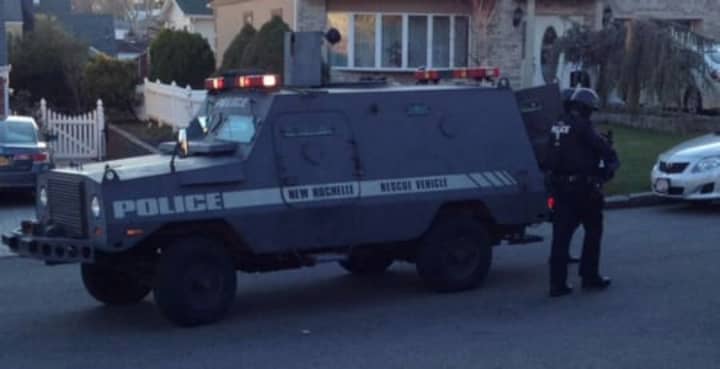Swatting - the act of deceiving law enforcement officials by utilizing falsified caller ID information to report a nonexistent emergency - has been on the rise recently, leading to massive, costly, potentially dangerous police responses that affect not only law enforcement officials, but nearby neighbors who are worried there is danger in the neighborhood.
In April, more than 50 police officers from seven Sound Shore departments, including a SWAT team and Westchester County police helicopter, were forced to respond to a vacant Eastchester home after receiving a false call from a private number warning of a hostage situation.
Eastchester Town Supervisor Anthony Colavita said the incident, which took several hours and involved the closing of multiple streets to traffic, cost Eastchester more than $25,000. It’s been estimated that millions have been spent on these incidents throughout the state.
“Each time something like this happens, we put our residents, and our officers at risk,” he said. “Our (local) police departments rely on each other, and these incidents create a disruption not only to our officers, but to neighboring departments and the county.”
New York Sen. Chuck Schumer said that swatting incidents have become a “national scourge” that create panic in the community, drains police department funds and causes an atmosphere of chaos in the entire area, since reinforcements from nearby municipalities are typically required.
Due to the rash of swatting reports, Schumer has proposed legislation that would see a maximum prison sentence rise from a maximum of five years to eight. It would force criminals to make restitution for the money and time wasted investigating the false incidents and would “close a loophole to make it illegal for perpetrators to evade law enforcement” by disguising phone numbers through the Internet.
“These dangers are not pranks,” he said. “These swatting attacks are serious incidents in which our emergency responders use up their time, energy and resources responding to false threats when they could have been elsewhere protecting the community from real ones.”
Schumer isn’t the only politician battling against swatting perpetrators. Earlier this year, Congressman Eliot Engel introduced the Anti-Swatting Act, which would increase penalties for falsifying a phone number by the technological trick known as “spoofing.”
“There have been two incidents in my district, one in Rye and another just a few weeks ago in Eastchester, during which, swatting required our brave first responders to waste their time and our tax dollars,” he said. “Swatting is a big problem. It diverts precious resources and could one day lead to an inadequate response to a serious emergency.”
Click here to follow Daily Voice Eastchester and receive free news updates.



